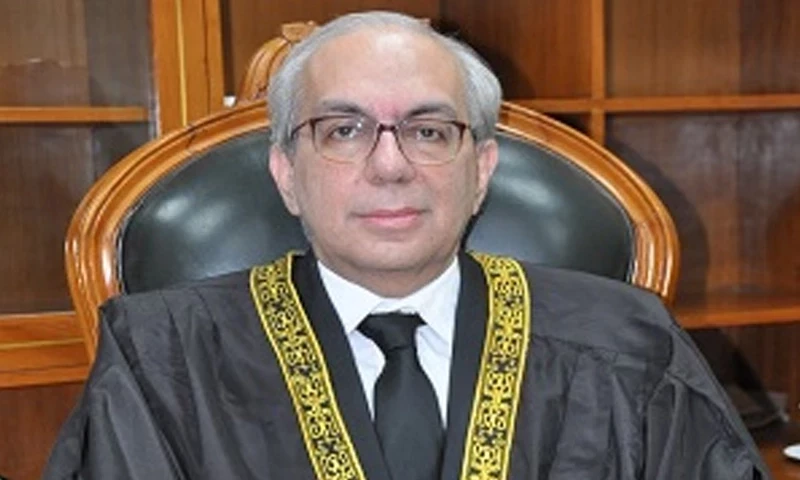Justice Munib
On Friday, Justice Munib Akhtar walked out of a meeting of the Judicial Commission of Pakistan (JCP) in a significant turn of events that has raised questions about the ongoing deliberations within the country’s top judicial body.
The meeting was convened to review the Judicial Commission of Pakistan Rules 2024 and the procedures for appointing judges to the higher judiciary.
The discussion was centered around the rules governing the nomination and appointment of judges, a crucial matter for ensuring the effective functioning of the judiciary.
The meeting saw the participation of several prominent members of the legal community, including Justice Mansoor Ali Shah, Justice Yahya Afridi, Justice Amin-ud-Din Khan, and former judge Justice Munir Ahmad.
The Law Minister also attended, alongside Attorney General Mansoor Usman and Akhtar Hussain, a representative of the Pakistan Bar Council.
These members constitute the core of the Judicial Commission, which plays a critical role in maintaining the independence and integrity of the judiciary in Pakistan.
The tension escalated when Justice Munib Akhtar proposed postponing the meeting to allow for further consideration of the amendments to the rules.
However, his suggestion to delay the meeting was not accepted by the other members of the commission.
Following the rejection of his proposal, Justice Munib chose to walk out of the meeting, signaling his disapproval and raising concerns about the decision-making process within the commission.
This walkout highlights the ongoing differences within the commission regarding the timing and manner of reviewing these important rules. It is worth noting that the meeting had been initially scheduled for August 28 but was rescheduled to September 13.
The purpose was to review the rules for appointing new judges to the High Courts, a matter of great significance given the current composition of the judiciary.
Chief Justice Qazi Faez Isa, who presides over the Judicial Commission, had earlier written to the Chief Justices of all High Courts, urging them to submit their nominations for judge appointments without delay.
The letter emphasized that High Courts with more than five vacant seats should expedite their nominations to fill these critical positions.
Meanwhile, the Supreme Court of Pakistan has reached its full complement of judges after a prolonged gap of two and a half years.
The Shariat Appellate Bench of the Supreme Court has also been active since July 29, signaling a renewed focus on strengthening the judiciary at all levels.
Justice Munib Akhtar’s walkout from the Judicial Commission meeting underscores the complexities and challenges involved in judicial appointments and the ongoing efforts to reform the rules governing such appointments.
The incident has drawn attention to the need for consensus and collaboration within the commission to ensure a transparent and effective process for appointing judges, which is crucial for upholding the rule of law and delivering justice in Pakistan.
I am a dynamic professional, specializing in Peace and Conflict Studies, Conflict Management and Resolution, and International Relations. My expertise is particularly focused on South Asian Conflicts and the intricacies of the Indian Ocean and Asia Pacific Politics. With my skills as a Content Writer, I serve as a bridge between academia and the public, translating complex global issues into accessible narratives. My passion for fostering understanding and cooperation on the national and international stage drives me to make meaningful contributions to peace and global discourse.










